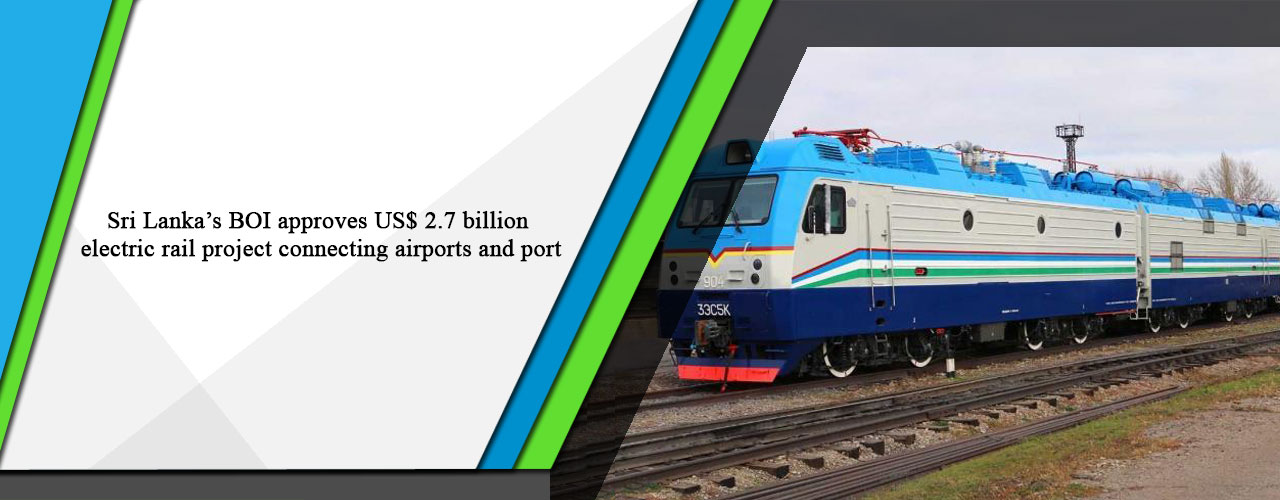Sri Lanka’s BOI approves US$ 2.7 billion electric rail project connecting airports and port
Sri Lanka’s Board of Investment (BOI) has reportedly approved the commencement of a comprehensive feasibility study for the deployment of an electrified high-speed rail project from the country’s main international airport – Bandaranaike International Airport (BIA) in Katunayake to the Colombo Port City and from Katunayake to the Mattala International Airport.
The latest breakthrough has been announced by President of High-Speed Train and Mixed Development Project Dr. Parimalam Michael, who conceived the project over a decade ago.
“If approved the two-stage program would bring US$ 2.7 billion in investment to Sri Lanka, with implementation possible as soon as 2022,” Dr. Michael has told the Daily FT in an interview.
He has said that his role is purely to facilitate the required foreign direct investment into the country.
Ernst & Young is to be commissioned to conduct a comprehensive economic and technical study on the program, with the agreement expected to be signed in Colombo this week.
“We have already signed an MoU with the BOI, and we received approval to undertake the study for two sections of the project. One is the 53 kilometres from Negombo to the Port City in Colombo, and the second stage is to conduct another line from BIA to the airport in Mattala with two stopovers in Galle and Matara. This would be under a Public-Private Partnership,” Dr. Michael has explained.
A former head of Malaysian trade delegations under Mahathir Mohammed, Dr. Michael has stated that he marketed his idea on an electrified railway system in Sri Lanka extensively across many countries, and whilst the then regime under current Prime Minister Mahinda Rajapaksa had considered the project positively, political changes had delayed its advancement.
Dr. Michael is cognisant of the recently cancelled Colombo LRT project, which was labelled economically unviable for the country.
“My project is completely different; my angle is purely to bring in investment to the country. To tap into foreign markets to form the equity, and encourage them towards the financial model we need to do. Shinan Bank, South Korea’s second largest bank has pledged it could commit 200 million euros in funding towards this project, which I have communicated. I am engaging experts like Ernst & Young to put up a good financial model, and also some prominent companies in China who have been involved in the railway business for a long time. I am not looking very much at the Chinese funding system, there are enough other equity funds from very large financial houses like in the UK for instance,” he has explained.
The first stage of the project will cost an estimated US$ 1.7 billion for 53 kilometres, Dr. Michael has said, whilst the second stage will add another US$ 1 billion.
He has added that there is adequate power supply to power these electric trains, despite concerns over Sri Lanka’s grid.
OSL take:
The proposed electric rail project will be a large scale development in Sri Lanka that will open up many business/investment opportunities in Sri Lanka. Apart from the project itself, the construction of supplementary infrastructure facilities provides many lucrative business/investment opportunities. Sri Lanka’s geographical positioning in the Indian Ocean, ease of doing business environment and the many trade agreements as well as trade concessions enjoyed by the country have made it a business hub in the South Asian region. Hence, foreign businesses/investors could explore business/investment opportunities in Sri Lanka.
| Article Code : | VBS/AT/29102020/Z_1 |

